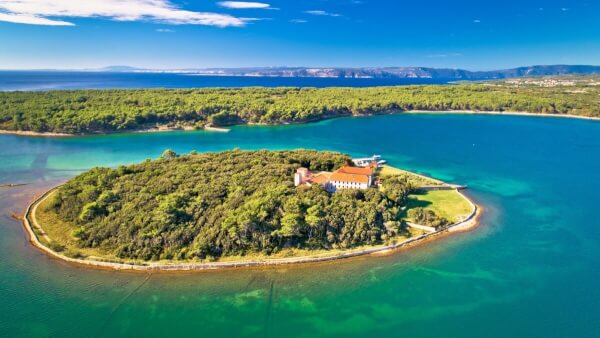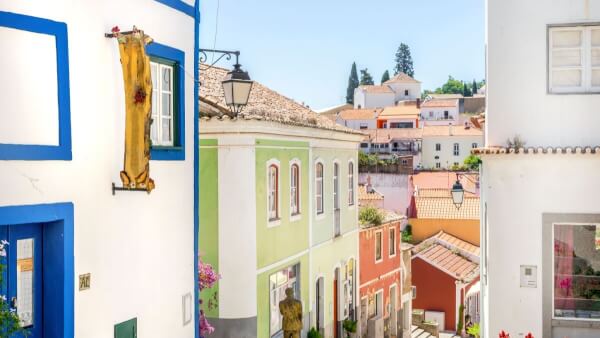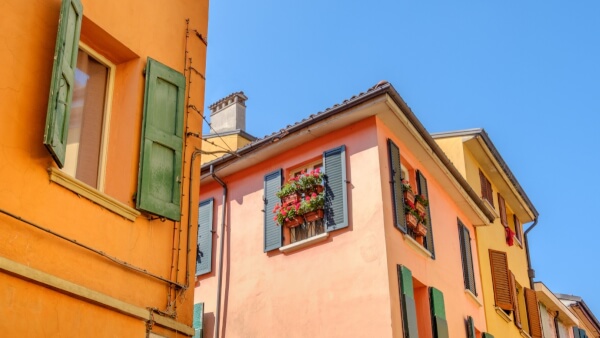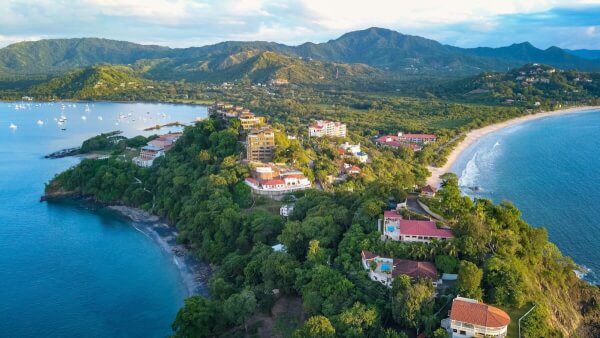Best places to buy a vacation home in the world
Thinking about buying a vacation home? Read on for the top 10 best places to buy a vacation home around the world and their relative costs.

A place to live in France is a common dream, and for good reason: this beautiful, hospitable country is a wonderful place to make a home. There are taxes, though.
Whether you’re an expat living in France or you’re buying property there from abroad, you’ll need to get up to speed on the ins and outs of French property taxes. Here’s a look at how they work.
Property tax refers to any tax concerning real estate. Broadly put, there are 2 main categories of French property taxes:
Sales taxes are the ones you encounter when buying or selling property. Maintenance taxes are paid regularly on property that you already own or rent.
In France, many of the costs associated with property sales are folded into one big fee, which encompasses both taxes and other fees.
However, French property maintenance taxes break down a bit further into 2 types:
There are a few differences for residents and non-residents, but the bulk of the costs are the same for both.
(Sales: Source 1 Source 2 // Maintenance: Source 1 Source 2 08 December 2017)
When a property changes hands in France, the convention is that the buyer pays the main fee (frais de notaire - more on that one shortly). But there will likely be seller’s fees too.
Of the 2 maintenance taxes, one is always the property owner’s responsibility; the other always the occupant’s, unless they are only renting on a short-term basis, in which case the owner pays.
Some taxes have full or partial exemptions, which are explained further below.
(Notaire fees: Source 1 Source 2 // Maintenance: Source 1 Source 2 08 December 2017)
There are different taxes to pay whether you’re buying or selling a property in France. They are property taxes, and are specifically called sales tax. This section will break those various costs down depending on which side of the transaction you’re on.
The good news is that an official known as a notaire will do the legwork in putting together your bill, so rather than a lot of different pieces of paperwork, you’ll just have 1 fee to deal with. The bad news, of course, is that that 1 fee does contain a lot of different costs.
This 1 big bill is called the frais de notaire, or notary’s fee. It includes a variety of fees and taxes to be paid by the buyer. The notaire him/herself doesn’t actually keep it - most of it goes to the state - but it’s gained its confusing name because the notaire is the one who collects it.
The notaire’s fee is made up of a variety of elements:
That’s far from a definitive list of all costs associated with buying or selling a property: they’re just the key ones that go into the notaire’s fee. If you’ve used an estate agent, they'll take a substantial commission too. And there are plenty of other possible fees as well.
(Source 1 Source 2 09 Dec 2017 - these sources also for the below)
This is the fee that goes to the notaire him/herself. It’s sometimes called the émoluments fee.
Note that if you don’t use an estate agent, the notaire may also take a sales commission, which is separate to this.
Stamp duty is a tax on buying a house. In French it’s known as droits de mutation or taxes de publicité foncière. The rate of stamp duty varies slightly between the departments of France, and significantly depending on the age of the property.
Be sure to check if the price advertised for a property is TTC or not: this stands for Toutes taxes comprises (all taxes included). If the price isn’t TTC, you’ll need to add stamp duty on to the asking price to get a better picture of the cost.
As noted above, TVA is paid on new or off-plan properties but not on older properties. There is also TVA to pay on the émoluments fee that goes to the notaire.
Part of the notaire’s job is folding all these fees and taxes together for you. The total frais de notaire bill you’ll receive will likely be greater than just the above; it may also include fees such as:
The official website of the notaires has a fee calculator where you can get a broad estimate of the total fee and how it’s broken down.
While the buyer shoulders a lot of the burden of the fees, selling a property in France has its costs as well:
This tax, known as capital gains tax in English, is charged on the difference between the purchase price and the selling price. There are various exemptions (see the section below).
(Source 1 Source 2 09 December 2017)
| New property (less than 5 years old) | Older property | Buyer | Seller | Cost | |
|---|---|---|---|---|---|
| Notaire fee | ✓ | ✓ | ✓ | 0.814% - 3.945% depending on property price, plus VAT | |
| Stamp Duty | ✓ | ✓ | ✓ | 5.8% or 5.09% for older properties, 0.7% plus VAT for newer properties | |
| Additional frais de notaire fees | ✓ | ✓ | ✓ | Variable. Includes land registry fee, approx. 0.1% | |
| VAT | ✓ | ✓ | Paid on stamp duty for new or off-plan properties, and on notaire fee. 20% | ||
| Agent fees | ✓ | ✓ | ✓ | ✓ | Varies - may be between 5% and 10%. If an agent isn’t used, a notaire commission is charged instead |
| Capital Gains | ✓ | ✓ | ✓ | 34.5% of profit, plus additional 2%-6% for very high gains |
(sources all as above)
Once you own a property, you do still have taxes to pay. These are what are called maintenance taxes. There are 2 main taxes that you have to pay each year in France when you own a property:
Here’s a look at both of them.
Taxe foncière must be paid by the owner of the property, whether or not they live there. You’ll receive a letter about paying this tax in the final quarter of the year. There’s a range of repayment options and you can pay in monthly instalments if you set it up.
(Source 1 Source 2 Source 3 08 December 2017)
In contrast to the taxe foncière, the taxe d’habitation is paid by the occupant rather than the owner. Like with the taxe foncière, you’ll receive a letter about this tax towards the end of the year, and you can sort out your payment method then.
(Source 1 Source 2 08 December 2017)
Those are the only 2 taxes you have to pay as a direct result of maintaining property in France. However, being a property owner in France means that you’ll have to file French tax returns and may have to pay the following:
You’ll probably have to pay the French impôt sur le revenu if you’re ‘fiscally resident’ in France. So even if you don’t actually live there, if you make money from letting out a property, that income is still taxable in France.
If you don’t live in France, it’s important to know whether or not your country has a double taxation treaty with France: these treaties insure that you don’t pay tax on the same income to 2 countries.
The basic rate for tax on rental income is 20%, but lower rates are possible depending on your total worldwide income. Watch out as well for a 15.5% tax for social charges on this income.
Complex rules govern how much of your rental income is taxable: it depends on whether the property is furnished or not, as well as your total yearly rental income. As one example, if your gross rental income is less than €23,900 and your properties are furnished, you’ll have to pay income tax on 50%.
(Source 1 Source 2 11 December 2017)
The hotly debated* impôt de solidarité sur la fortune* currently applies to those who have a net wealth of more than €800,000. If you’re a non-resident, only your French assets are considered. If you’re a foreigner who has newly become an expatriate in France, for the first 5 years you only have to pay based on the value of your French assets, not your worldwide assets.
Wealth tax is currently charged at between 0.5% and 1.5% depending on the extent of your wealth.
70% of the market value of your property counts towards your assets.
An important caveat: changes to wealth tax are afoot. Check what the very latest state of play is before getting your checkbook out - or putting it away.
(Source 1a Source 1b Source 2 11 December 2017)
| Resident in France | Non-resident in France | Property occupant | Property owner | Cost | |
|---|---|---|---|---|---|
| Taxe foncière | ✓ | ✓ | ✓ | Variable depending on region and function of home (second homes cost more) | |
| Taxe d’habitation | ✓ | ✓ | ✓ | Variable depending on region and function of home (second homes cost more) | |
| Income tax | ✓ | ✓ | If the property is being rented out | Variable depending on total income and nature of rental income | |
| Wealth tax | ✓ | ✓ | If net wealth (including 70% of property value) exceeds €800,000 | Currently 0.5%-1.5% of total assets |
(Sources as above)
You shouldn’t have to pay VAT on stamp duty for older properties.
You don’t have to pay capital gains tax in France if the property is your main residence when it’s sold.
You don’t have to pay taxe foncière on buildings less than 2 years old, if they’ve been properly declared. And you can claim relief on this tax in the following cases:
(Source 1 Source 2 08 December 2017)
You don’t have to pay this if the property is uninhabitable.
(Source 1 Source 2 08 December 2017)
For sales costs, consult the notaire for a schedule: they are in charge of billing and collecting the fees.
You receive bills for taxe foncière and taxe d’habitation towards the end of the year; either pay the total promptly or set up a schedule of recurring payments.
Check with the notaire for sales costs and how to pay. They redistribute the total fees themselves, including paying the government.
For sales costs, take a look at the fee calculator on the official website for French notaires, to get a rough idea of costs.
There are a variety of ways to pay most other property taxes as well as the other taxes involved. You’ll receive a bill for both taxe foncière and taxe d’habitation, which will detail payment options. Online is often a good option.
To pay taxes online, make your way to the official government website. It will take you through the process step by step.
If you’re making a payment to the French government - or a French notaire - you should make sure you don’t pay the banks or money transfer services more than you have to. The last thing you need is an extra cost on top of your taxes. Wise could help if you manage your finances internationally.
Banks and traditional money services often mark up the exchange rate heavily - frequently by 4-5% - and there may well be fixed fees on top of that too. But Wise uses the real, mid-market exchange rate - the only one that’s fair - and only charges one small fee, stated clearly upfront.
So whether you already have a French bank account or you just need to get more money into the country, Wise can probably save you money.
And with a borderless multi-currency account, you can even hold money in euros for as long as you want, and get virtual local account details so that you can send and receive payments with ease in the US, the UK, the EU and Australia. Borderless accounts allow you to hold money in up to 28 different currencies, so you can switch between currencies whenever you want.
Take a look at how much you could save by using Wise rather than a bank transfer.
Taxes are always a headache, especially when property is involved. Good luck in navigating the French system - and in handling your money internationally without losing out.
| ----- |
| This publication is provided for general information purposes only and is not intended to cover every aspect of the topics which it deals. It is not intended to amount to advice on which you should rely. You must obtain professional or specialist advice before taking, or refraining from, any action on the basis of the content in this publication. The information in this publication does not constitute legal, tax or other professional advice from TransferWise Limited or its affiliates. Prior results do not guarantee a similar outcome. We make no representations, warranties or guarantees, whether express or implied, that the content is the publication is accurate, complete or up to date. |
*Please see terms of use and product availability for your region or visit Wise fees and pricing for the most up to date pricing and fee information.
This publication is provided for general information purposes and does not constitute legal, tax or other professional advice from Wise Payments Limited or its subsidiaries and its affiliates, and it is not intended as a substitute for obtaining advice from a financial advisor or any other professional.
We make no representations, warranties or guarantees, whether expressed or implied, that the content in the publication is accurate, complete or up to date.

Thinking about buying a vacation home? Read on for the top 10 best places to buy a vacation home around the world and their relative costs.

Find out the true cost of owning a private island, how to buy one, and the top destinations for island ownership around the world.

Find out what you need to know about getting a mortgage in Canada when buying property abroad as an American.

Find out what you need to know about getting a mortgage in Portugal when buying property abroad as an American.

Find out what you need to know about getting a mortgage in Italy when buying property abroad as an American.

Find out what you need to know about getting a mortgage in Costa Rica when buying property abroad as an American.